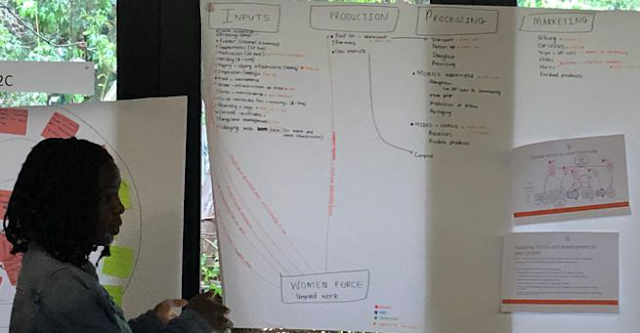Getting Gender Sensitive!
Written by: Cindy Koen
Whilst sitting in a gender equality workshop, convened by the Government of Flanders for Projects of which the Dinkwayane Watersmart project was one, it was clear that the definition of gender, sex and even equity and equality, changes from person to person. This makes the subject even more sensitive, as where do you draw the line between educating someone and discrediting their belief, religion or culture.
This was a struggle for many of the participants. All the participants work for some organisation facilitating sustainable development projects. We were all under the impression that we are doing this more open minded and that we do make a difference in the gender equality field. The scary thing was that, the level of impact that we have is miniscule. Many factors play a role, and we should actively do analysis on the gender impact that we have.
Many times, it is to do with what happens behind the scenes. Women are more vulnerable to climate change and the effects thereof due to their locations. Often, women in impoverished areas are left at home to tend to the house and children. Then men leave to work and send money home. Only a percentage of the money will be sent home and these women must make plans to survive. Whereas when women will be placed in a similar situation, they will send majority of the money home.
Some of the statistics that where shared by the Gender Alliance where shocking and made it clear that we need to start adapting.
- 75% of 774 million illiterate adults are women ¹
- Women account for 70% of those living below the poverty line²
- Over 2.7 billion women are legally restricted from having the same choice of jobs as men³
- Yearly an estimated 15 million girls under 18 get married, with little or no say in the matter
- 3.31% of CEO’s on the JSE were women
- On average, Women get paid 28% less than men for the same position⁴
- Women spend on average 4 hours on unpaid work per day, compared to men who spend only 1.6 hours per day⁵
- In South-Africa individual land ownership for men is 71% compared to women at 13%⁶
It is for statistics like these that we must approach gender inequality with equity, however focusing on equality as an end goal.




Comments
Post a Comment